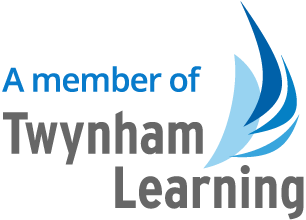Revision
Revision is essential if you wish to achieve your best, whether you are sitting KS3 Assessments, GCSEs, A Levels or preparing for university entrance examinations.
Please find below a selection of tips and advice for both parents and students regarding revision.
Year 11 Revision
Year 11 have a dedicated page designed to provide you with all the information and resources you may need in supporting your child through Year 11. Please click below to go to this page.
KS3 Assessments
Key Stage 3 Assessments
At Twynham School, our goal is to ensure that students fully understand their curriculum, so they know more and can do more. This foundation of knowledge and skills prepares them for success in Key Stage 4 and beyond. Identifying and addressing learning gaps in Key Stage 3 is crucial for effective teaching and student progress.
To achieve this, we use both formative and summative assessments. Formative assessment is continuous and allows teachers to check students' understanding through methods such as questioning during lessons, live marking of work, quizzes, tests (in class or as homework), and other forms of retrieval practice. Summative assessment evaluates how well students have learned and retained the curriculum through tests, exams, or assessments conducted in timed or controlled conditions.
Outline of Assessments
- Each in-class assessment will last a maximum of 40 minutes.
- Subject assessments will be standardised and take place in classrooms.
- The timetable and revision list for each subject are provided below, along with guidance on how to best prepare for the assessments.
- Access arrangements will be made as needed to support students' usual ways of working.
| Year 7 | Year 8 | Year 9 |
| Revision Programme | Revision Programme | Revision Programme |
| Parent Letter | Parent Letter | Parent Letter |
|
Parent Briefing
|
Parent Briefing |
Parent Briefing
|
Exam Board Past Papers
AQA
http://www.aqa.org.uk/exams-administration/exams-guidance/find-past-papers-and-mark-schemes
Edexcel/Pearson
http://qualifications.pearson.com/en/support/support-topics/exams/past-papers.html
OCR
The Student Planner
The Student Planner contains strategies to help students revise effectively and prepare for exams. Examples of strategies suggested to students are:
- Make summaries of key points
- Produce mind maps of key content
- Practise planning essay-style answers
- Practise writing essays under timed conditions
- Using post-it notes for key skills/ideas/texts
- Create flash cards
- Teach someone else what you know about a subject
- Record yourself explain an idea and listen to it whenever you have time, and test yourself.
- Make up questions and take the test a couple of days after you have revised
- Complete past papers (use the website links above) and use the mark scheme to see how well you’ve done.
Useful Websites
GCSE Bitesize - http://www.bbc.co.uk/education/levels/z98jmp3
Science GCSE Revision: http://www.my-gcsescience.com/
A Level and GCSE Revision tips and discussions - http://www.s-cool.co.uk/
Flash card machine – ideal if you learn best via flash cards - http://www.flashcardmachine.com/
How parents can help with exam stress - http://www.familylives.org.uk/advice/teenagers/school-learning/exam-stress/
Curriculum
- Curriculum Overview
- Subjects
- Homework
- Revision


